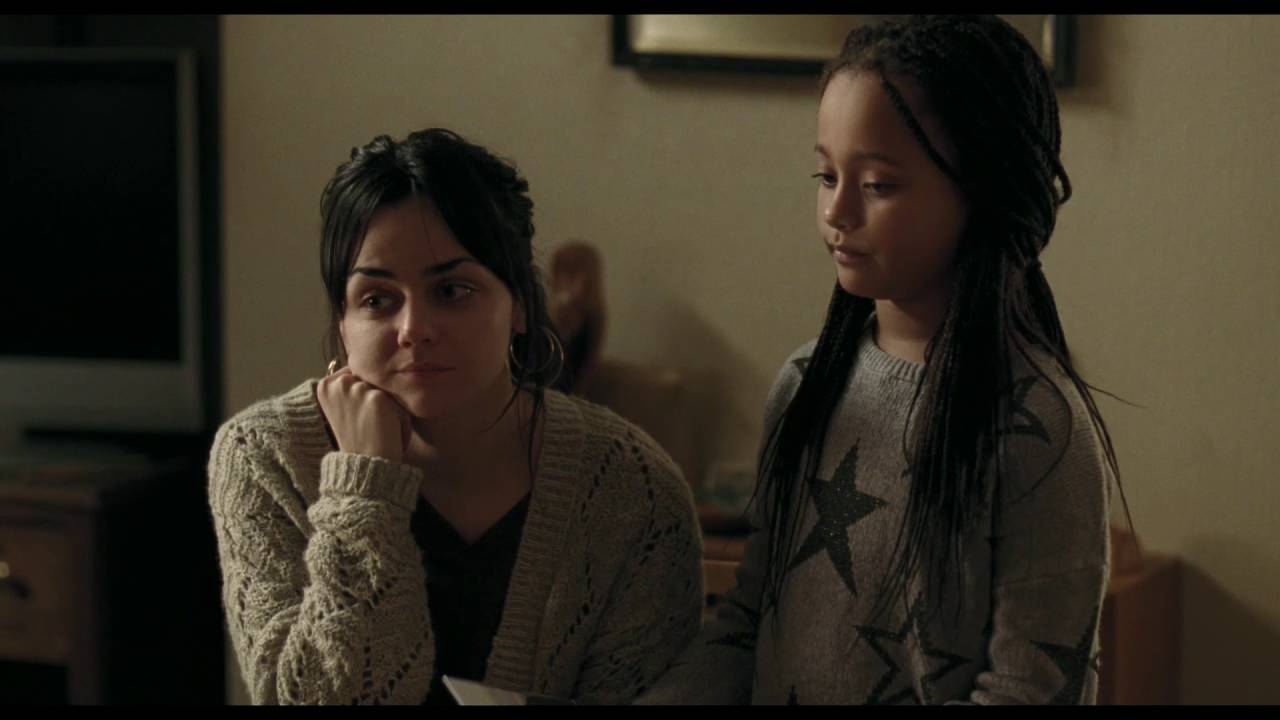Day 2 of my San Sebastian IFF experience: bodies, gendered, disabled, and otherwise constructed; politics, two eagerly anticipated English language movies & the culture shock that prompted a day of reflection. Starring: Joseph Gordon-Levitt, Sigourney Weaver, Oliver Stone, and Ken Loach.
But first, the tourist miscellanea for the day. See, like most, I’m a creature of comfort. Like some, I’m not particularly outgoing a hopeless introvert. In Donostia, this all came together in the form of the realization that I miss my high-speed, all free, ubiquitous wi-fi from home. I ran up and down the city, but save for two spots, there was no Internet in sight. I also survive on caffeine—but where are my ubiquitous, all engulfing major supermarket chains from back home, to get coffee and Coke? (It’s worth mentioning here that many local mercados in San Sebastian only take cash payments, which might be an issue if, like me, you come from outside the Eurozone). And, really, isn’t it brazen of me, an Eastern European, to find something lacking in a western country? And one from the country that has given Spain its largest minority, too!
Entitled or not, this was my mini-culture shock right there. I’m not as well educated in Spanish politics and socio-economic policies as I'd like to be, but I do pay attention when I'm some place new. So, this is what I saw in San Sebastian: I saw naturists sunbathing in the nude on the most central beach, right below a posh fin de siècle promenade. No one seemed vexed. I saw protests on a pristine beach.
The IBI tax has been driving many low-income residents in Spain out of their homes.
I saw so many people in wheelchairs I had to consciously tell myself not to stare: they were upstairs in the balcony of Teatro Principal for the festival screenings, at the bars at night, taking a stroll in the morning—you see, we don't see them back home, in Romania, because they’re virtually banned from getting around. I heard collective rhythmical clapping for the festival promo, before each screening, and I saw people of all ages, queuing for two hours just to catch a glimpse of Donostia Award recipient Sigourney Weaver.
I came to the conclusion that the San Sebastian community might actually like its festival. I surmised that all the downtown mercados and bars are mostly locally owned so that they can reap its benefits. I don’t know, really—it's all mere conjecture. But, on a day where I paid a lot of attention to the body and to politics, what the festival gave me couldn’t have been any more appropriate.
The Body
Sigourney. Ms. Weaver.
Early in the day at the end of which she was honored in the Donostia Award gala, Sigourney Weaver spoke at the press conference for A Monster Walks. She waited patiently for the barrage of photographers, tweeters and instagrammers to disperse. She made the polite rounds of speaking in terms of high endearment about San Sebastian and Spain. And then, the seasoned female lead made the one point which earns her a spot on many a female sci-fi fans personal Walk of Fame. “Now I play roles that would have traditionally gone to men”, Weaver answered, when asked how she feels about the comparative lack of leading roles for older actresses. Roles for men may be numerically more, she explained—but they’re not necessarily better.

Savage Cinema
Since San Sebastian has a huge surfer community, this Red Bull-backed section of adventure sports films should come as no surprise. This year’s selection includes many titles that broach the surfer lifestyle—past the shallow, yet visually pleasing shots of sunsets, tanned hides, tall waves, and muscular backsides. Personal recommendation: Orange Sunshine (USA, 2016. Dir. William A. Kirkley) which reveals how a hippie community of surfers turned into a ring of LSD dealers in the ‘60s and ‘70s—because all that peace and love can’t always come naturally, I suppose.
Culinary Cinema
As a foodie, I’m having a tough time trying to stop at just one rec from this section—especially since it’s not (just) about gourmet delicacies. The 7 titles this year explore topical themes including food education, food science, charity, tradition, and ethnic identities. (Pun intended) they’re all a treat, but if I had to stop at just one, I’d go with the yet-unreleased Theater of Life (Canada, 2016. Dir. Peter Svatek). It tells the tale of some of the world’s most prestigious chefs coming together in Milan, to lend a hand in running a local soup kitchen.
The Politics
I, Daniel Blake (UK-France-Belgium, 2016. Dir. Ken Loach)

The Story: An aging, ailing, recently widowed carpenter (Dave Johns) fights his way through the British welfare system. In the process, he befriends a similarly downtrodden, single young mother of two (Hayley Squires).
The Talk of the Town: Ken Loach has recently turned 80 and, in their review of the flick, Variety astutely points out that, “with his bone-deep empathy for the desperate and the downtrodden, you may feel that he was almost put on earth to make a dramatic feature about the current economic moment.”
The Good: Not a second goes by on screen where anyone in the cast makes you aware of the fact that they're playing a character. Rather, they all seem of the world they’re portraying (lower class Newcastle). For all the despair of a tale about how one ends with no income and no hope for the future, the movie certainly doesn’t lack wit. And, through it all, the writing manages to convey a highly political point, without seeming contrite: the faults in our (social) systems are perpetuated when the individuals who make them up, like social workers and police officers, acquiesce with their inhumane philosophies. For a somewhat forced analogy, think of the Nurenberg trials and the lower-rung Nazis tried for simply 'carrying out orders'. In I, Daniel Blake, it is made clear that where empathy and the will to help shine through, they create a hope-restoring sense of community. For Daniel Blake that hope is fleeting, but that, perhaps, is the bigger point here: that the individual doesn’t have to bear the responsibility of fighting and vanquishing an established system—the system must be reformed through wholesale, coherent changes.
The Bad: We like Daniel Blake. We relate to his problems: he’s out of a job, has just had a heart attack and risks losing his social aid. Yet, through it all, he doesn’t victimize himself, helps others out, and is an all-around likable fellow. After convincingly conveying all these points through showing, not telling, the film ends with a gratuitous expose of his beliefs, in speech form. We could all have easily done without.
The Verdict: Loach films have a ‘bleeding heart’ quality about them which has been known to put off more politically conservative film fans. But while I, Daniel Blake does veer toward a melodramatic ending, its relatable humor and endearing characters make it hard not to empathize with, in the current post-recession climate.
Snowden (USA, 2016. Dir. Oliver Stone)

The Story: The world’s #1 whistleblower, Edward Snowden from the NSA (Joseph Gordon-Levitt) starts out believing he can change the world by doing his share for the US government. He famously ends up dismayed, defecting, and stateless in Moscow. Oliver Stone’s movie tells us how it all started for the intelligence and security contractor, and how he ended up where he is now.
The Talk of the Town: Much has been written about Stone’s Snowden and it’s still making its festival rounds, so there’s likely more to come. While, so far, the critics seem to generally agree that the movie is more of a dud than a win, there’s much to be said about its genealogy. Interestingly, while Stone and Gordon-Levitt have both repeatedly met with Snowden in Moscow to research his character, Academy Award winning documentarist Laura Poitras (Citizenfour) has refused to be associated with this fiction film.
The Good: Joseph Gordon-Levitt takes on Snowden’s displayed mannerisms and achieves incredibly believable results on screen. Shailene Woodley (Lindsay Mills) is a believably warm, supportive, yet not overly sweet long-term girlfriend for Snowden. Nicolas Cage makes an (unintentionally) hilarious appearance as a genius engineer/basement-dweller for the CIA. Tom Wilkinson, Melissa Leo, and Zachary Quinto have remarkable group chemistry as the trio of journalists who work with Snowden at helping him come forward with his information. All in all, the cast is not the problem. Neither is Snowden's (at times unnervingly melodramatic) relationship with Mills—while the attempt to humanize him through his love life may be misguided, allowing his long time partner some talk time on-screen provides a needed female counterpoint to his exploits. Finally, Stone has some merit for finding powerful ways to cinematically illustrate the relevance of the Verizon, Prism, and Heartbeat leaks.
The Bad: Where do we begin? The music and several scenes (like the gratuitous sex between Snowden and Mills; or the kitschy visual metaphor of seeing the Earth turn into Snowden’s iris) make this movie look like a two-dimensional action hero blockbuster, at times. Stone skips some essential elements in Snowden’s story: he never questions whether or not his whistleblowing could have been genuinely harmful to the US. This, ironically, might only drive his active detractors closer to making their argument believable. In brief, Snowden’s character falls flat, despite Levitt's acting efforts. The entire movie looks like unwarranted propaganda, as it fails to address any of the relevant questions about Snowden's case. Stone simply glorifies his beloved hero. And, to make matters far, far worse, as far as the propagandistic quality of this movie goes, Snowden (the real guy) appears at the end, essentially erasing all of Levitt’s on-screen work thus far. Fittingly, the movie ends in a cheerful round of applause for our hero.
The Verdict: Stone’s wager with Snowden is to redefine the notion of patriotism in 2016—incidentally, a presidential election year in the United States. This may be why his film doesn’t question his protagonist’s heroism, or the accusations of espionage brought against him. Snowden is a new type of hero in the era of a new type of warfare and Stone’s film is just here to see ‘what makes such a man tick’. It is sappy, melodramatic, and at times infuriatingly unquestioning, but its simplistic approach indicates that it might be a film purposefully made for the less informed and media savvy. And, for what it’s worth, this hero-movie-cum-love-story, about a formerly staunch conservative turned anti-government protester, might stand some chances at winning over those who still don’t get why Snowden matters. It does over-simplify and over-play the cheap feels card, but, in terms of the information it delivers, it's far more palatable (read: less dense) than Poitras’ better documentary.
Main photo via San Sebastian Film Festival (by Gary Garaialde)






